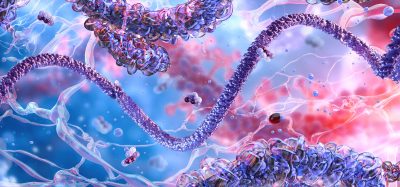Computational advances in the label-free quantification of cancer proteomics data
Posted: 1 January 2019 | Drug Target Review | No comments yet
Proteomics research has become a popular method for characterising functional proteins as well as discovering the innovative targets for oncologic disorders…


In recent years, proteomics research has become a popular method for characterising the functional proteins driving the transformation of malignancy, tracing the large-scale protein alterations induced by an anti-cancer drug, as well as discovering the innovative targets and first-in-class drugs for oncologic disorders.
Proteomics became popular due to its ability to provide quantitative and dynamic information on tumour genesis and development by directly profiling protein expression. Label-free Quantification (LFQ) is an important method for quantifying protein expression in cancer proteomics. However, the main challenge in using this method for discovering anti-cancer targets and drugs is the low precision, poor reproducibility, and inaccuracy of the LFQ of proteomics data.
Researchers have presented a review of the recent advances and the computational development of LFQ in cancer proteomics. Science databases were searched for label-free quantification approaches, cancer proteomics, and computational advances. A number of experiments including popular acquisition techniques and state-of-the-art quantification tools are critically analysed and discussed. Following this, the processing approaches which included transformation, normalisation, filtering, and imputation were discussed and their impacts on improving LFQ performance of cancer proteomics were evaluated.
The authors also discuss the future direction for enhancing the computation-based quantification technique for cancer proteomics. The dramatic increase in the use of LFQ approaches in cancer proteomics can lead to the enhancement of quantification strategies for studying cancer proteomics in the future once its limitations are accounted for.
This research by Dr. Feng Zhu et al. is published in Current Pharmaceutical Design.
Related topics
Informatics, Label-Free, Oncology, Proteomics
Related conditions
Cancer








